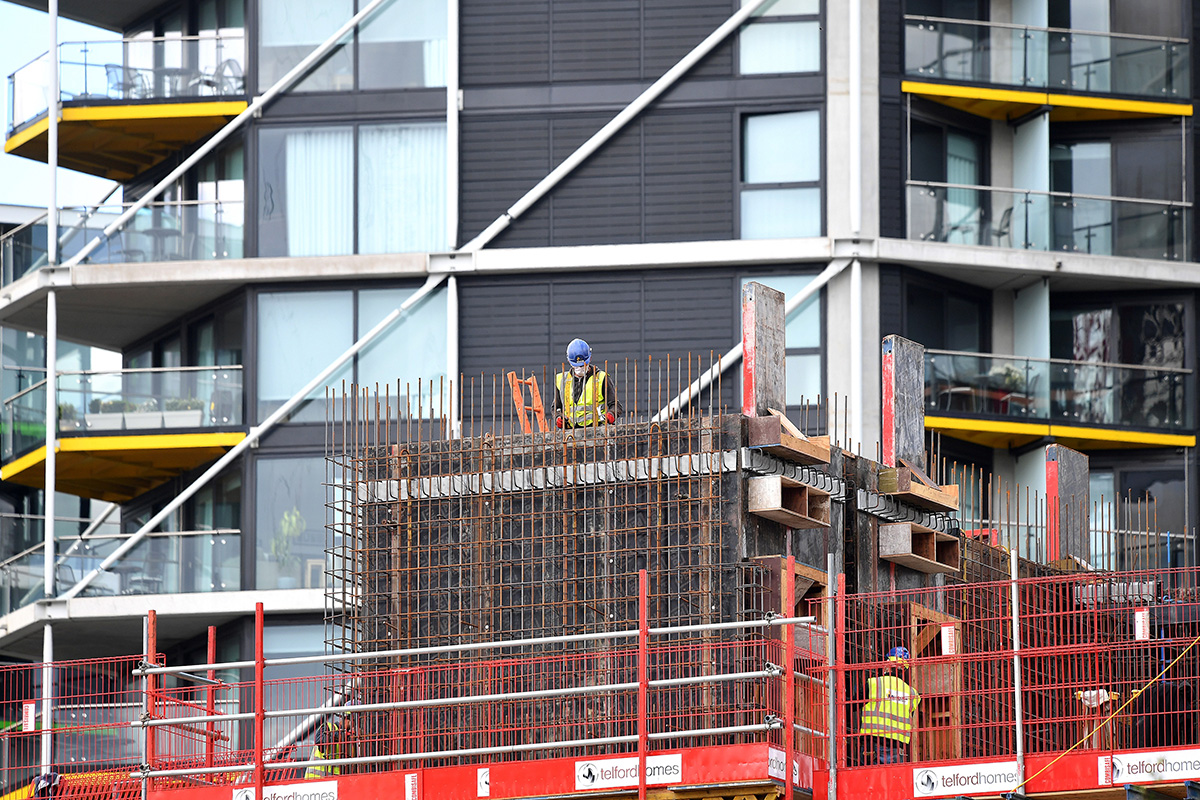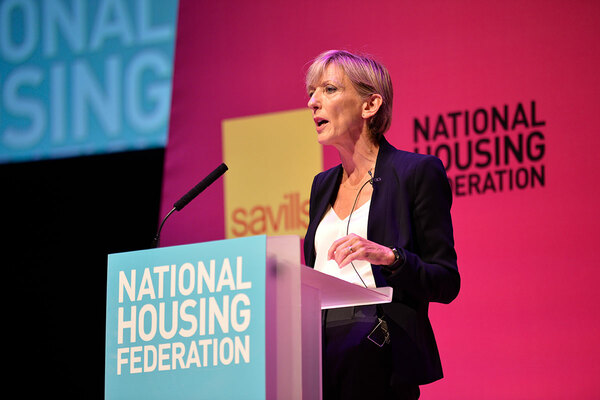You are viewing 1 of your 1 free articles
Five trends from the latest ‘health of the sector’ poll of social landlords
An annual poll of social landlords shows concern about Brexit waning, a tightening of the purse strings and the transformative effect of the pandemic. Greg Pitcher reports

Brexit is biting, but anxiety is reducing
Although 40% of the 104 social landlords from across the UK polled by accountancy firm RSM for Inside Housing anticipate a negative impact from the UK’s full exit from the EU, this is down from 46% last year and 50% in 2019.
Meanwhile, the proportion of organisations confident that Brexit will not affect them at all has soared from 4% to 22% in that time – indicating that the departure process has gone far more smoothly than was feared.
Worryingly, a third still do not know what impact Brexit will have on them – a figure unchanged from a year earlier despite the long transition and negotiation period.
Increased cost of materials is the most commonly cited impact on landlords, with two-thirds of respondents seeing this effect. Access to materials comes in a close second.
The proportion of organisations worried about a labour shortage as a result of Brexit is down dramatically from 63% a year ago to just 37% in the latest survey.
The pandemic has changed everything
Four in five providers told us they are reworking their budgets and business plans in light of the COVID-19 crisis, while an overwhelming 93% say the global pandemic has affected their service to residents in some way.
While changes to working practices would be expected at such a difficult time, RSM does raise “slight concern” that almost one in four social landlords had to de-prioritise compliance with the Value for Money (VfM) Standard to respond to coronavirus – indicating a loosening of the purse strings to spend throughout the pandemic.
“Compliance with the VfM Standard is mandatory for all registered providers in England, and boards that are struggling should refocus in 2021 to avoid falling behind,” says RSM.
Perhaps even more worryingly, two-thirds of respondents say the pandemic has affected staff cohesion, health or welfare.
Unsurprisingly, more than 90% reported increased reliance on technology. More interestingly, seven in 10 have permanently moved to more homeworking, while more than half reduced office capacity.
On the financial side, more than 60% of social landlords have seen increases in empty homes and rent arrears as a result of coronavirus.
While two-thirds have delayed repairs programmes on their housing stock in response to the pandemic, just 13% reduced development plans.
Appetite for alternative funding sources is diminishing
Almost nine in 10 social landlords say availability of additional government cash is the key factor in determining the size of their development programmes. Indeed, 73% declared they will only be using grant and bank funding to build homes.
The proportion of organisations willing to consider alternative means drops slightly in the latest report. But more revealing is the doubling in the percentage ticking the ‘not applicable’ box when asked which sources of alternative funding they had used.
In line with this, every category of alternative funding is down in its use from last year. Just 30% of respondents had utilised private placements in the past year, a fall from 39% in 2020, while just 26% turned to corporate bonds, reduced from 32% 12 months earlier.
Survey responses compared
2020
46% - Expected negative Brexit effect
63% - Had concerns over labour shortage
32% - Raised corporate bonds
94% - Planned to raise rents by maximum permitted
2021
40% - Expect negative Brexit effect
37% - Have concerns over labour shortage
26% - Have raised corporate bonds
89% - Plan to raise rents by maximum permitted
Planning reforms are not popular
There was suspicion of the government’s much-heralded planning reforms. Almost half of the respondents said they expect to decrease the number of homes they are building in light of the proposed changes.
In a foreword to the Planning for the Future white paper, released last summer, prime minister Boris Johnson promised to build a new development control system for England “from the ground up”. This would “actively encourage sustainable, beautiful, safe and useful development”, he insisted.
But just 3% of organisations polled expect planning changes to boost their levels of housebuilding, with fears surrounding the replacement of Section 106 (which accounts for 30,000 affordable homes each year) with
a new Infrastructure Levy.
Elsewhere, the white paper promised support for house builders “using innovative modern methods of construction”, but almost two-thirds of social landlords say they have not even considered modular building.
As RSM says in its report: “The government has a job on its hands to convince the sector that modular builds are the housebuilding game-changer it says they are.”
Purse strings are being tightened
Less than 20% of organisations that responded to the survey plan to raise staff salaries by more than 1% this year.
Although understandable given the economic climate created by Brexit and the pandemic, this marks a huge turnaround from early 2020 when four in five landlords expected to give pay rises in excess of 1%.
Meanwhile, 13% of social landlords expect to close lucrative defined benefit pension schemes to new members and 16% anticipate moving existing members on to generally less beneficial defined contribution initiatives.
Perhaps unsurprisingly, given the financial pressures they are under, 89% of landlords intend to raise rents by the maximum permitted amount this year.
This is down slightly from the 94% that said the same 12 months ago, but shows that the large majority of social landlords remain keen to take advantage of the opportunity after being forced to cut rents during the second half of the last decade.
Interestingly, almost half of respondents say mergers were not good for organisations – representing a significant loss of faith in the model.
Sign up for our daily newsletter
Already have an account? Click here to manage your newsletters



